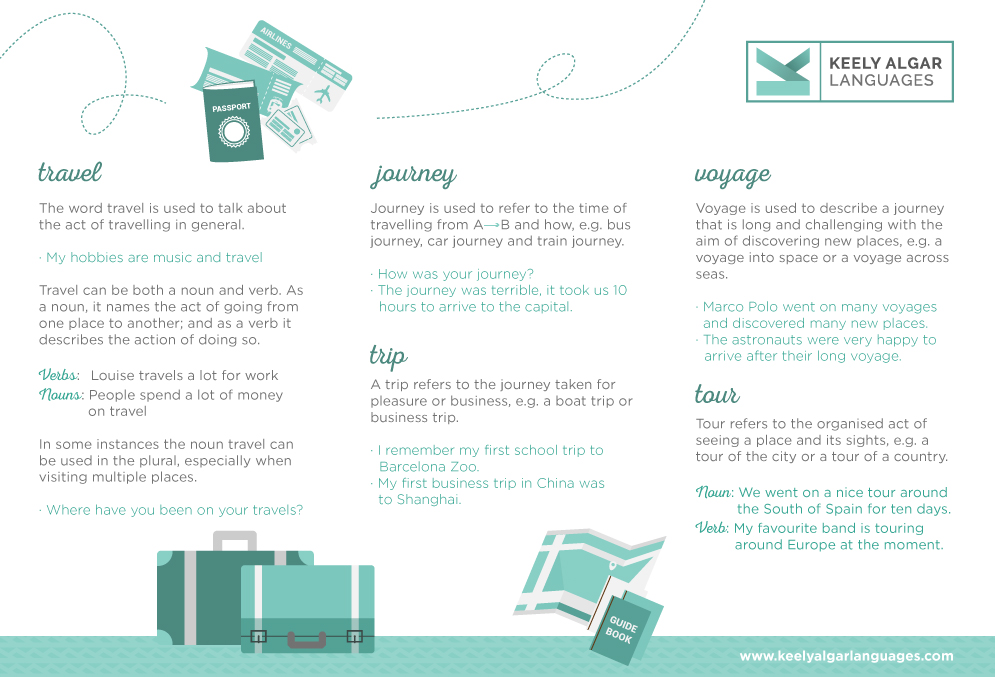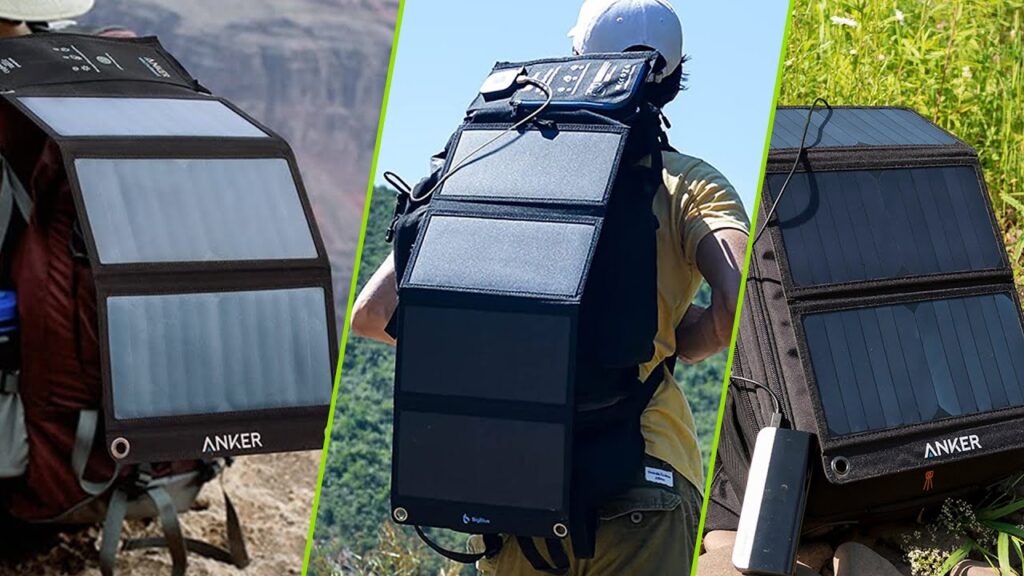A travel trip refers to a short-term exploration, while a journey signifies a longer and more profound experience. Now, let’s dive into the intricacies of these terms.
The terms “travel,” “trip,” and “journey” are often used interchangeably, but they have distinct meanings that reflect different aspects of moving from one place to another.

1. Travel
- Definition: Travel is a general term that refers to the act of moving from one place to another, typically over some distance, and can involve various modes of transportation (e.g., by plane, car, train, or on foot).
- Usage: The term “travel” encompasses the entire process of going somewhere, including planning, transportation, and the experience of being away from home. It can be short-term or long-term, domestic or international.
- Examples:
- “I love to travel and explore new cultures.”
- “She travels for work frequently.”
2. Trip
- Definition: A trip refers to a specific instance or occasion of travel, usually involving a round journey from a starting point to a destination and back. Trips are often shorter in duration and have a clear purpose or objective, such as a vacation, business meeting, or visit to a specific location.
- Usage: The term “trip” implies a more temporary and planned experience, often with a defined start and end. It can refer to both short and long journeys, but it is typically associated with a shorter time frame.
- Examples:
- “We’re planning a weekend trip to the mountains.”
- “Her business trip to New York was very productive.”
3. Journey
- Definition: A journey refers to the process of traveling from one place to another, often emphasizing the experience and passage of time involved. Journeys are typically longer and may involve multiple stops or stages along the way. The term can also have a metaphorical meaning, representing personal growth or a life experience.
- Usage: “Journey” often connotes a more extended, continuous, or challenging travel experience, with an emphasis on the experiences and changes that occur along the way. It can be used in both literal and figurative senses.
- Examples:
- “The journey across the country took us three weeks.”
- “His journey to self-discovery was a long and rewarding one.”
Travelling is a common passion among many, whether it’s for leisure, work, or self-discovery. Engaging in a travel trip involves visiting a place for a short period, typically for a vacation or business purpose. On the other hand, a journey is a longer and deeper exploration that often involves personal growth and transformation.

Journeys can be physical, mental, or emotional, encompassing an extended period of time and often leaving a lasting impact on the individual. Each concept has its own unique characteristics and purpose, catering to different aspects of our desire to explore and discover. Let’s delve into these distinctions in more detail.

Credit: www.keelyalgarlanguages.com
Definition Of Travel
Travel is the act of moving or journeying from one place to another, typically over a considerable distance. It involves the movement of people between geographical locations, which can be done on foot or via various means of transportation, such as cars, trains, planes, boats, or bicycles. Travel can be for various purposes, including leisure, business, education, or other personal reasons. It may involve short or long-term stays in the destination or multiple destinations and can be domestic (within one’s own country) or international (to another country)
What is the difference between Travel and Trip Journey
Travel is the process of moving from one place to another, typically involving a journey of some distance. It encompasses the act of traveling, usually for leisure, business, or other purposes, which provides individuals with the opportunity to explore new destinations, cultures, and experiences.
The terms “travel,” “trip,” and “journey” are often used in relation to moving from one place to another, but they each have distinct meanings:
Travel
- Definition: Travel is a broad term that refers to the act of moving from one location to another, usually over a distance. It encompasses the entire process of going from one place to another and can involve various forms of transportation, such as planes, cars, trains, or on foot.
- Usage: Travel refers to the overall experience of being away from home, regardless of the duration or purpose. It is often used in a general sense to describe the activity of exploring new places, whether for leisure, business, or other reasons.
- Example: “I love to travel and visit new countries.”
Trip
- Definition: A trip is a specific instance of travel, usually involving a round journey from one place to another and back. Trips are often shorter in duration and have a specific purpose, such as a vacation, business meeting, or visit to a particular location.
- Usage: The term “trip” is used to describe a planned outing or excursion that is typically temporary and has a clear start and end. It is often associated with short-term travel.
- Example: “We took a weekend trip to the mountains.”
Journey
- Definition: A journey refers to the process of traveling from one place to another, often emphasizing the experience, challenges, and time involved in the travel. Journeys are typically longer and may involve multiple stages or stops along the way. The term can also have a metaphorical meaning, representing personal growth or life experiences.
- Usage: “Journey” is often used to describe a more extended or meaningful travel experience, focusing on the passage of time and the events that occur during the travel. It can be used both literally and figuratively.
- Example: “Her journey across the country lasted several months.”
Definition Of Trip
A trip refers to a short journey for a specific purpose, whereas travel implies moving from one place to another. On the other hand, a journey encompasses the entire travel experience, usually involving a longer duration and deeper meaning. Each term reflects a unique perspective on the act of moving from one place to another.

A trip is a purposeful journey undertaken with the intention of reaching a specific destination or experiencing a particular event or activity. It involves traveling from one place to another, typically for a short duration. Trips can be planned in advance or spontaneous, requiring careful organization or being more impromptu.
A trip can be a means of recreation or a way to explore new locales. It often involves taking a break from routine activities to rejuvenate and create lasting memories. Whether it’s a weekend getaway or a long-awaited vacation, trips are an opportunity to escape the monotony of daily life and immerse oneself in new surroundings and experiences.
During a trip, individuals may choose different modes of transportation, such as flights, trains, or road trips, depending on the distance and convenience. Accommodation options can range from hotels and resorts to vacation rentals or even camping sites, depending on personal preferences and the nature of the trip.
The duration of a trip can vary from a few hours to several weeks, depending on the purpose and destination. Some people may take multiple trips throughout the year, while others may plan a single, extended trip. The primary focus of a trip is typically the destination, with travelers being motivated by the desire to explore new places, relax, enjoy activities, or simply experience a change in scenery.
In summary, a trip is a purposeful journey undertaken to reach a specific destination or partake in a specific event or activity. It offers a break from routine, an opportunity to explore new surroundings, and a chance to create lasting memories. Whether it’s a short getaway or a longer vacation, a trip is an exciting way to indulge in new experiences and broaden horizons.
Definition Of Journey
A journey is a broader term encompassing both travel and trip. While travel refers to the act of moving from one place to another, a trip is a specific planned excursion. A journey holds a deeper meaning, symbolizing personal growth, transformation, and self-discovery.
A journey is a voyage, a passage from one point to another, whether it be a physical or emotional transition. It is an expedition that involves exploration, discovery, and growth. Unlike a travel trip, which is primarily focused on the destination, a journey is more about the transformation and experiences along the way.
A journey can take many forms, such as a physical adventure across the globe, a spiritual quest within oneself, or even an intellectual pursuit through knowledge and learning. It is an opportunity to step outside of your comfort zone, challenge yourself, and broaden your horizons.
With each journey comes a sense of purpose and direction. It is not just about getting from point A to point B; it is about the profound impact that the journey has on an individual. It is about the personal growth, self-discovery, and the stories that unfold.
One could argue that a journey is not defined by its duration or distance, but rather by the transformative experiences and learnings gained along the way. It is about embracing the unknown, facing obstacles, and finding beauty and inspiration in new and unfamiliar surroundings.
When embarking on a journey, there are certain characteristics that set it apart from a travel trip:
- Transformation: A journey involves personal growth, self-reflection, and a change in perspective.
- Exploration: It is an opportunity to explore new places, cultures, and experiences.
- Challenges: Journeys often involve facing obstacles and overcoming them, which can lead to personal development and resilience.
- Emotional Connection: A journey evokes emotions and creates memories that last a lifetime.
- Self-Discovery: It allows individuals to discover more about themselves, their strengths, and their passions.
Conclusion
In conclusion, a journey goes beyond the physical act of traveling from one place to another. It encompasses personal growth, transformation, and the meaningful experiences that occur along the way. Whether it is a physical adventure or an inner quest, a journey is defined by the profound impact it has on an individual’s life.
Purpose Of Travel
Traveling provides an opportunity for individuals to explore new places, immerse in diverse cultures, and create lasting memories. Whether it’s a trip or a journey, the purpose of travel varies, driven by different motivations and intentions.
Motivations For Traveling
People travel for various reasons, each influenced by personal aspirations and desires. Some common motivations for travel include:
- Exploring new destinations and experiencing different cultures
- Seeking adventure and adrenaline-packed activities
- Relaxation and escape from daily routines
- Business and professional engagements
- Education and learning opportunities
The Difference Between Travel Trip And Journey
Although travel, trip, and journey are often used interchangeably, they hold distinct meanings. Understanding these differences is essential for travelers seeking clarity in their travel experiences.
Travel
- Scope: Travel is an overarching concept that includes any act of moving from one place to another. It’s a broad term that can apply to short commutes within a city or long-distance flights across continents. Whether you’re going on a vacation, attending a business conference, or simply commuting to work, all of these activities fall under the umbrella of travel.
- Purpose: Travel doesn’t specify a purpose or duration. It’s the general activity of moving, and it can be for leisure, work, education, or even migration. It might involve one or multiple destinations and can be spontaneous or meticulously planned.
- Examples in Context:
- “She travels frequently for her job, often flying between New York and London.”
- “Traveling opens your mind to new cultures and experiences.”
Trip
- Scope: A trip is a more specific event within the broader category of travel. It typically refers to a journey that is relatively short and has a defined purpose. Trips are usually round journeys, meaning you start and end at the same location.
- Duration: Trips are often associated with shorter timeframes, such as a day, a weekend, or a week. However, a trip can also be longer if it involves multiple destinations or activities.
- Purpose: The purpose of a trip is usually clear and specific. It might be a business trip, a vacation, a school field trip, or a family visit. The focus is often on the destination and the activities planned there.
- Examples in Context:
- “Our trip to Paris lasted only a week, but we managed to see all the major sights.”
- “He’s on a business trip to meet with international clients.”
Journey
- Scope: A journey is a term that often carries a deeper or more meaningful connotation compared to travel and trip. It suggests a longer or more complex travel experience that may involve challenges, discoveries, and significant time. Journeys often evoke a sense of adventure or personal growth.
- Duration: Journeys are typically longer in duration, often involving multiple stages or legs. They can span weeks, months, or even years, depending on the nature of the travel.
- Emphasis: The term “journey” places more emphasis on the experience itself, including the trials, learning experiences, and transformations that occur along the way. It can also be used metaphorically to describe life experiences or personal development.
- Examples in Context:
- “The journey across the desert was treacherous, but it taught them resilience and patience.”
- “His journey to becoming a successful entrepreneur was filled with challenges and rewards.”
Key Differences:
- General vs. Specific: Travel is the broadest term and can apply to any movement from one place to another, while a trip is a specific instance of travel with a defined purpose and timeframe. A journey often implies a longer, more involved, and often transformative travel experience.
- Purpose and Duration: A trip usually has a clear purpose and is often short-term, while a journey emphasizes the process and experiences, typically over a longer period. Travel, on the other hand, doesn’t inherently imply a specific purpose or duration; it simply refers to the act of moving between places.
- Experience: The word journey tends to suggest a more profound or significant experience, often one that leads to personal growth or change. It can refer to physical travel or a metaphorical path in life. In contrast, a trip is generally more about reaching a destination and enjoying or fulfilling the purpose of that visit, and travel is the general act of going from one place to another.
Examples to Illustrate the Differences:
- Travel Example: “I love to travel around the world and see new places. Last year, I traveled to five different countries.”
- Trip Example: “We took a trip to the Grand Canyon last summer. It was just a three-day trip, but it was unforgettable.”
- Journey Example: “Their journey by train across the Siberian landscape took them through beautiful and remote parts of Russia, each day revealing something new and unexpected.”
Characteristics Of A Trip
A trip and a journey may seem similar, but they have distinct characteristics. A trip is often a short and planned excursion, while a journey is a longer and more transformative experience that involves personal growth.

Taking a trip is an exciting way to explore different destinations, create memories, and break away from the monotony of daily life. Understanding the characteristics of a trip can help you plan and enjoy your travel experience to the fullest. Here are some key factors that define a trip:
- Travel is the broadest term, encompassing the entire activity of moving from one place to another.
- Trip refers to a specific, often short-term travel event with a clear purpose and duration.
- Journey emphasizes the experience, duration, and process of traveling, often over a longer distance or time and can also be used metaphorically to describe personal or life experiences.
Duration
The duration of a trip refers to the length of time you spend traveling to a specific destination and back. Trips can range from short getaways that last a few days to longer adventures that span several weeks or even months. The length of the trip often depends on various factors such as the distance to the destination, your availability, and the purpose of your travel.
Specific Destination
A trip involves having a specific destination in mind. Unlike a journey, which may not have a predetermined endpoint, a trip usually revolves around reaching a particular place. Whether it’s a popular tourist spot, a historical landmark, or a breathtaking natural wonder, having a specific destination gives your trip a sense of purpose and allows you to plan your itinerary accordingly.
When planning a trip, it’s important to consider what exactly you want to experience and explore at your chosen destination. Researching attractions, landmarks, and local culture can help you make the most out of your trip and ensure that you don’t miss out on any must-see sights.
To summarize, the characteristics of a trip include having a defined duration and a specific destination in mind. These factors play a crucial role in shaping your travel experience and allow you to make the most out of your trip.
Credit: www.facebook.com
Characteristics Of A Journey
A journey is more than just a simple trip. It is an experience that takes us to new places, both physically and emotionally. Here are the key characteristics that distinguish a journey from a typical travel trip:
Longer Duration
A journey is often associated with a longer duration compared to a regular travel trip. While a trip may last only a few days or weeks, a journey can span months or even years. It allows for a deeper exploration of various destinations, cultures, and personal growth.
Emphasis On Experience
Unlike a travel trip, which may focus on ticking off popular tourist attractions, a journey places a greater emphasis on the overall experience. It is about immersing oneself in the local culture, interacting with locals, and gaining a deeper understanding of the destination. Rather than rushing from one landmark to another, a journey allows time to explore hidden gems and create meaningful connections.
During a journey, time becomes a valuable resource. It is not constrained by a fixed itinerary but rather allows for spontaneous detours and unexpected discoveries. This freedom to explore and adapt adds an element of excitement and unpredictability to the journey.
Moreover, a journey is not solely about the destination; it is about the transformative process one undergoes along the way. It provides opportunities for self-reflection, personal growth, and gaining new perspectives on life. Whether overcoming challenges, facing fears, or embracing new experiences, a journey has the power to shape us into better versions of ourselves.
Overall, a journey offers a more profound and enriching experience compared to a travel trip. It is about creating lasting memories, challenging oneself, and embracing the unknown. So, if you are ready to embark on a journey, get ready to immerse yourself fully in the adventure that lies ahead!
Frequently Asked Questions For What Is The Difference Between Travel Trip And Journey
What Is The Difference Between A Travel Trip And A Journey?
A travel trip is a short excursion, while a journey is a longer, more transformative experience that involves personal growth and exploration.
Which Is Better, A Travel Trip Or A Journey?
It depends on your preferences and goals. A travel trip offers fun and relaxation, while a journey allows for self-discovery and new perspectives.
How Do I Choose Between A Travel Trip And A Journey?
Consider your desired outcomes. If you seek adventure and new experiences, choose a journey. If you prefer a laid-back vacation, opt for a travel trip.
Conclusion
While both travel and journey involve moving from one place to another, they carry different connotations. A travel trip is associated with leisure and exploration, while a journey signifies a purposeful and transformative experience. Understanding the nuances between the two can help travelers better articulate their experiences and emotions.
Whether embarking on a trip or a journey, each experience holds its own unique value and meaning.